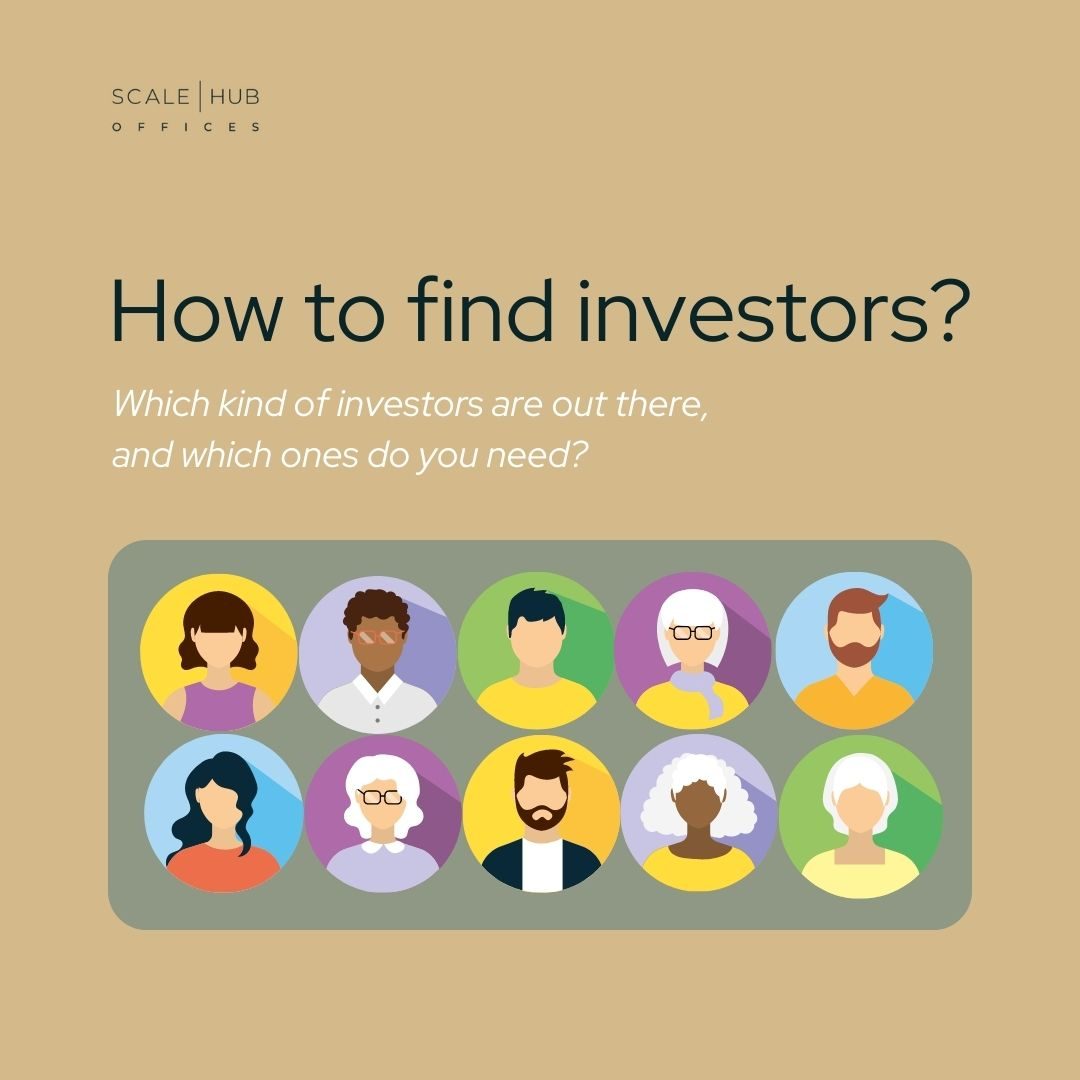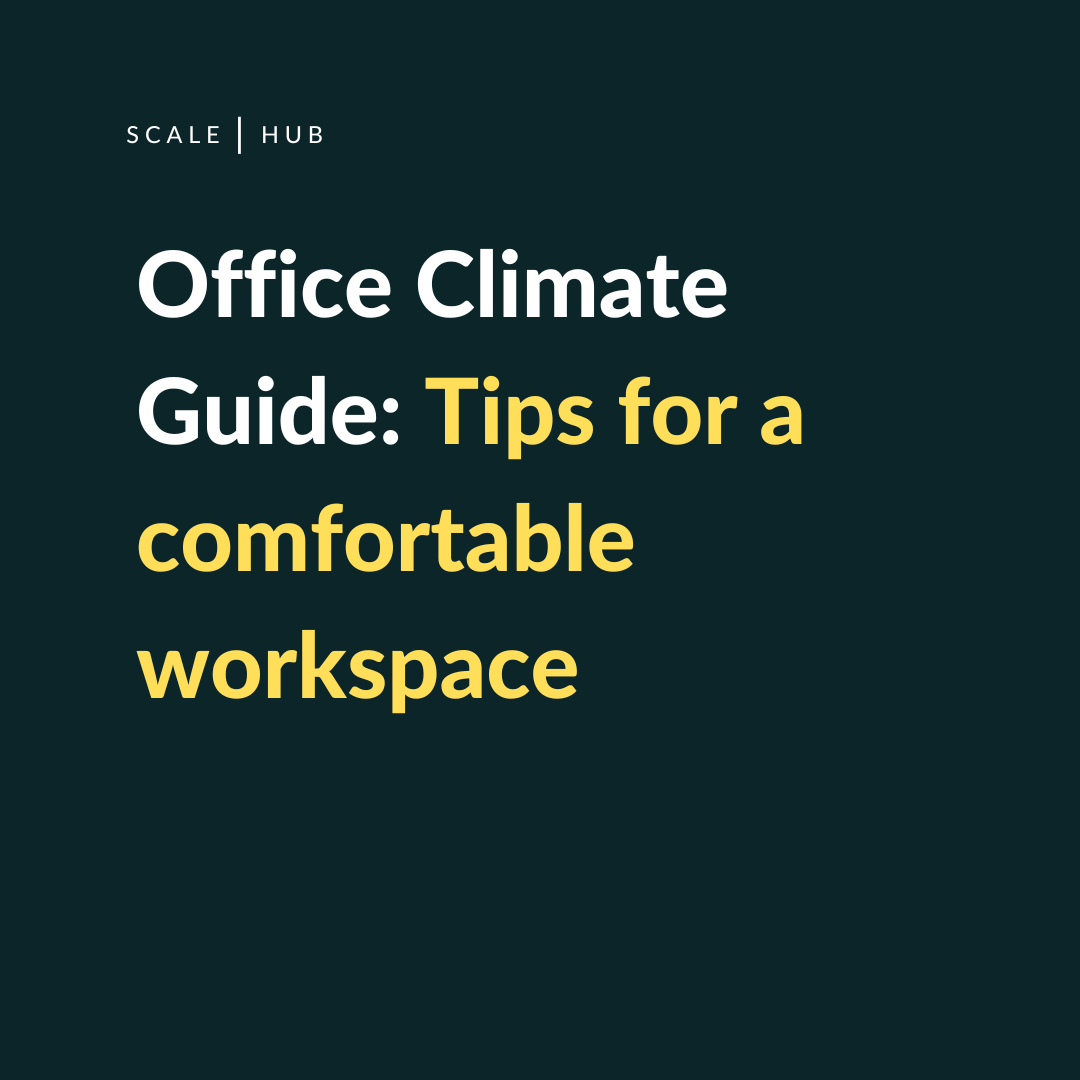
Which kind of investors are out there and which ones do you need?
As a scale-up, your business has successfully gone past the start-up stage. An amazing achievement. However, you still need to find footing as a growing company. In fact, the scale-up phase is the most dangerous time for entrepreneurs and businesses; not the start-up stage as many believe.
As a start-up, you had relatively little to lose and could afford to make certain mistakes. With a small amount of “cash” and some luck with a few committed employees, your business could make a lot of headway.
Now that your company takes off, you’ll experience sudden acceleration and growth – things can get hot really fast. At this point, there’s a whole new set of challenges coming your way. One of them: funding needs.
To scale up, you’ll have to find investors.
The shortlist of resources
It doesn’t matter how grown your business is or how impressive your business ideas, plans, and projects are; you are going nowhere without (more) capital. And unfortunately, it’s at this stage that a lot of businesses crumble. Finding investors is essential.
So the big question is: How do you find investors as a Scale-Up?
We would love to tell you that we’ve got them all lined up for you. Or even that we know all there is to know on the topic; we are a Scale hub after all. And we have learned a lot from all the growing companies working under our roofs, and ofcourse from being a growing company ourselves. And we do dive deep to understand all our customers’ needs. This blog is a result of that effort.
We’ll be sharing what we know or have found about the various ways to find investors as a scale-up. What are your options? How do you meet your company’s financing needs?
In short, the answer is:
● Venture capital companies
● Bank loans (SME Credit Guarantee Scheme)
● Crowdfunding
● Private investors and Business Angel Networks
We will be looking at each of these options in more detail.
Venture Capital Companies
Venture capital corporations consist of professional investors. They typically get their funding from multiple sources – including companies and public pension funds.
These venture capital firms find young companies, typically in the same sector, with great potential and invest in them. In exchange, they expect a high return.
After a period of time, possibly ten years at most, venture capital firms will usually either sell their shares in the business back to its owners or through an initial public offering.
(This is the time when your company should have found its footing.)
With their sales, the venture capitalists are able to get back the money they originally put in plus profit. This is what is referred to as the ‘exit strategy.’
Beyond the funds invested into the business, there are other advantages Scale-Ups enjoy from venture capitalists: expertise, experience, and network. Venture Capital Companies can fund multiple rounds for the same company, another major advantage.
We found that in the Netherlands, venture capital companies usually start their investment at 200K euro’s, in exchange for ownership equity, and average between €1 million and €3 million.
You would have already guessed: Hundreds of companies apply for venture capital funds every year. If your application is going to succeed, you will need to draw the attention of the investors and the proposal should be so good, it singles you out of the crowd.
Bank loans and SME Credit Guarantee Scheme
When looking for funds, bank loans are a logical first thought to come to the minds of business owners. However, banks are usually a lot pickier about the businesses they give out loans to, taking a lot less risks than venture capitalist investors.
Before giving out a loan to any company, banks will require the business owner to present several documents for valuation. These may include a business plan, annual figures, project reports, etc. Nonetheless, bank loans are a good option for businesses that can provide collateral. And typically ideal for companies looking to fund buildings or machines (the solid stuff). Banks are also typically more favourable to companies that have been growing organically with steady income growth over a number of years.
In the Netherlands, another option to get (part of a) bank loan is through the SME Credit Guarantee Scheme (BMKB), which grants loans for investment to eligible business owners (more about that further on). The Ministry of Economic Affairs and Climate Policy stands as guarantor, enabling you to borrow more than would otherwise be possible based on your collateral. The bank, and other possible funders, are covered by the government’s “SME credit guarantee scheme”. Other benefits of the BMKB: lower interest percentages and increased credit guarantees.
Entrepreneurs do not apply for the SME Credit Guarantee (BMKB) themselves. You apply for a loan from one of the participating banks or other funders, which in turn submit the application for the government’s credit guarantee.
To qualify, your business should be established in the Netherlands (or Bonaire, Saba, or St. Eustatius) and for more than three years, has up to 250 FTE employees and has an annual revenue of up to €50 million or a balance sheet total of up to €43 million.
Crowdfunding
Crowdfunding has become quite popular and is the one method of sourcing most of us are familiar with. How it works: as an entrepreneur you put up your goods on a crowdfunding platform with – ofcourse – accompanying descriptions. You share with the public what your goal is, your business plan and how much funding you need to accomplish your goal.
On seeing your ‘proposal,’ consumers can begin to pledge towards it.
Different types of crowdfunding
There are different categories of crowdfunding platforms to be found online. There’s Reward-based crowdfunding where you can request contributions from people in exchange for rewards of some sort. For instance, you put up a new phone product and might promise that anyone who contributes to your crowdfunding up to XX amount, will get a phone, Bluetooth speaker device, and power bank in return. Kickstarter and Indiegogo are examples of platforms operating on reward-based crowdfunding.
Another type of crowdfunding is Equity Crowdfunding. This crowdfunding category allows contributors/investors to take some ownership of the company in the form of shares. The initial amount invested is not paid back, but as the company grows and begins to make more profit, the investors will receive their share of the profits too.
The type of crowdfunding we all have come across personally is donation-based Crowdfunding where contributors won’t expect you to return their money. But it’s usually for charity and non-profit purposes.
To – hopefully – set up a successful crowdfunding there are a few steps you should take – besides the obvious ones of having your business plan ready and knowing how you will return the investments. To “launch” successfully, choose your crowdfunding platform wisely and really dive into the platform’s rules. Know how you want to “sell” your product and have a promotional “kit” in place. Begin to tell everyone about it, both offline and online. And very important: Make sure to work towards fulfilling every promise.
Private investors and Business Angel Networks
An angel investor (private investor), also known as informal- or seed investor, is a wealthy individual who invests in businesses to partake in their formation and growth. The “angels” mostly use their own money to invest.
Business angels typically invest between the range of €25,000 to over €1 million into a business, sometimes even more. The latter often being the investment you are looking for when scaling up.
While some private investors prefer to work individually, some may decide to pull their resources together to work as a network. Such networks exist in the Netherlands too and are united through the Business Angels Networks (BAN) Netherlands, a networking organisation also operating outside of the Netherlands, with European and International branches.
The advantage of “choosing” a business angel (network) as an investor obviously is that you get much more than the funds. You also get to plug into their experience, knowledge, and networking opportunities.
You can find a business angel via your bank, accountant or possibly your own network. An overview of potential investors can be found on TechLeap.nl’s Finder. Try to find one that matches the sector your company operates in.
To seek, to find, and not to yield*
The search for an investor is only a small part of the deal. The biggest step you’ll take and commitment you’ll make is attracting them to actually invest in your business. To prepare yourself, some last advice.
Develop your brand. A great story helps. And ofcourse you should be able to assure investors that what you sell is relevant to its market and adds value.
Get to know your investors. Research them and learn about their objectives. Make sure that your proposal matches their goals. Get expert assistance to help you choose the right funding type.
Think outside the (money) box when considering the best options for investment. Remember that you shouldn’t base your decision on the funds alone. Consider which investor is the most knowledgeable, has a wide network and provides opportunities in the sector your company deals in.
Stay strong. In pitching yourself and your brand to various investors, you might face more than a few rejections. Do not let that determine who you are and look towards the next opportunity to pitch your ideas to another investor.
— — — — —
* To seek, to find and not to yield. Beautiful isn’t it. We borrowed it from Lord Tennyson’s poem Ulysses (about Greek hero Odysseus). Ok, in all honesty: we are quoting James Bond’s boss M, quoting from Tennyson’s poem “Ulysses” in Skyfall. And the full quote is: To strive, to seek, to find, and not to yield. And it clearly was not written to teach us how to find investors as a scale-up. The poem is about the acceptance of ageing and death and making each moment count.
May all your efforts to grow your business count! And back to the poem: it is actually really beautiful, so when you finish today’s search for investors, we recommend you read the poem “Ulysses” by Alfred Lord Tennyson



